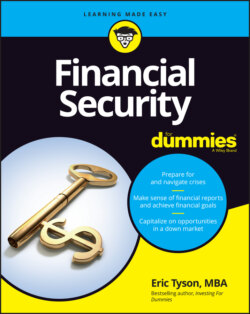Читать книгу Financial Security For Dummies - Eric Tyson - Страница 29
World War II
ОглавлениеMany folks believe that wars are bad for the financial markets and economy, but often they are not. For sure, unforeseen negative events like the attacks on Pearl Harbor (December 7, 1941) can cause a short-term decline/shock. But coming out of the Great Depression and the high unemployment rate of that period, World War II led to increased demands for various manufactures and other products needed for the wartime efforts. Hiring and output soared, and unemployment quickly declined to less than 2 percent.
Stock prices were reasonably stable during this period, rising about 30 percent over six years. After an initial modest rally following the outbreak of the war, an excess corporate profits tax enacted by Congress squashed the stock market upswing. The attack on Pearl Harbor triggered a near 10 percent decline. Stocks then resumed their rally when the Allies began to get the upper hand.
Coming out of World War II, the U.S. government had a huge debt load. This led the government and Federal Reserve to keep interest rates low in the years following the war to help service the large U.S. government debt. Keeping rates low hurt bondholders who were stuck receiving low interest rates, and when rates finally did rise, bond prices dropped, reducing bondholders’ returns through declining bond market values.
